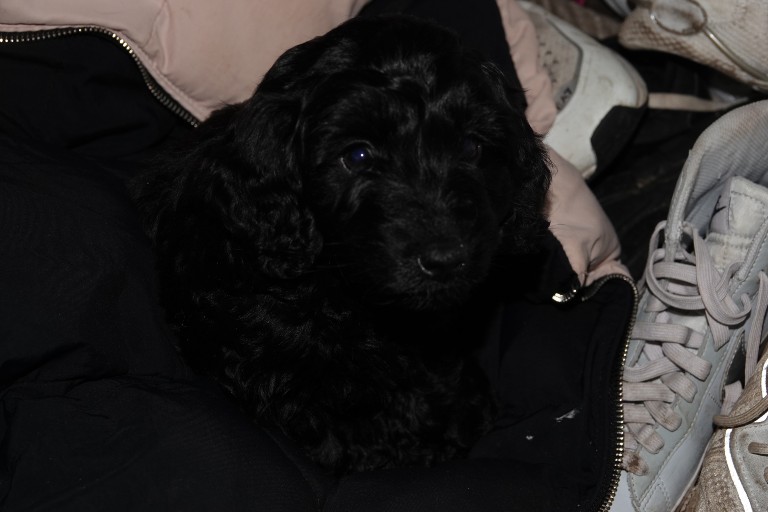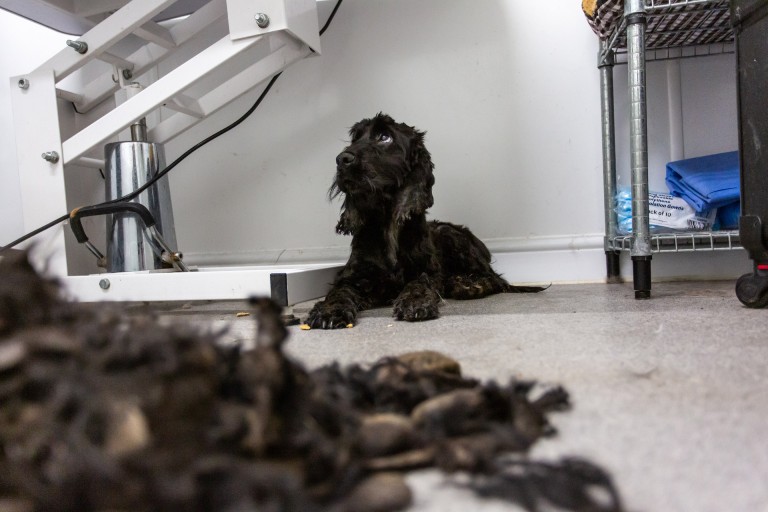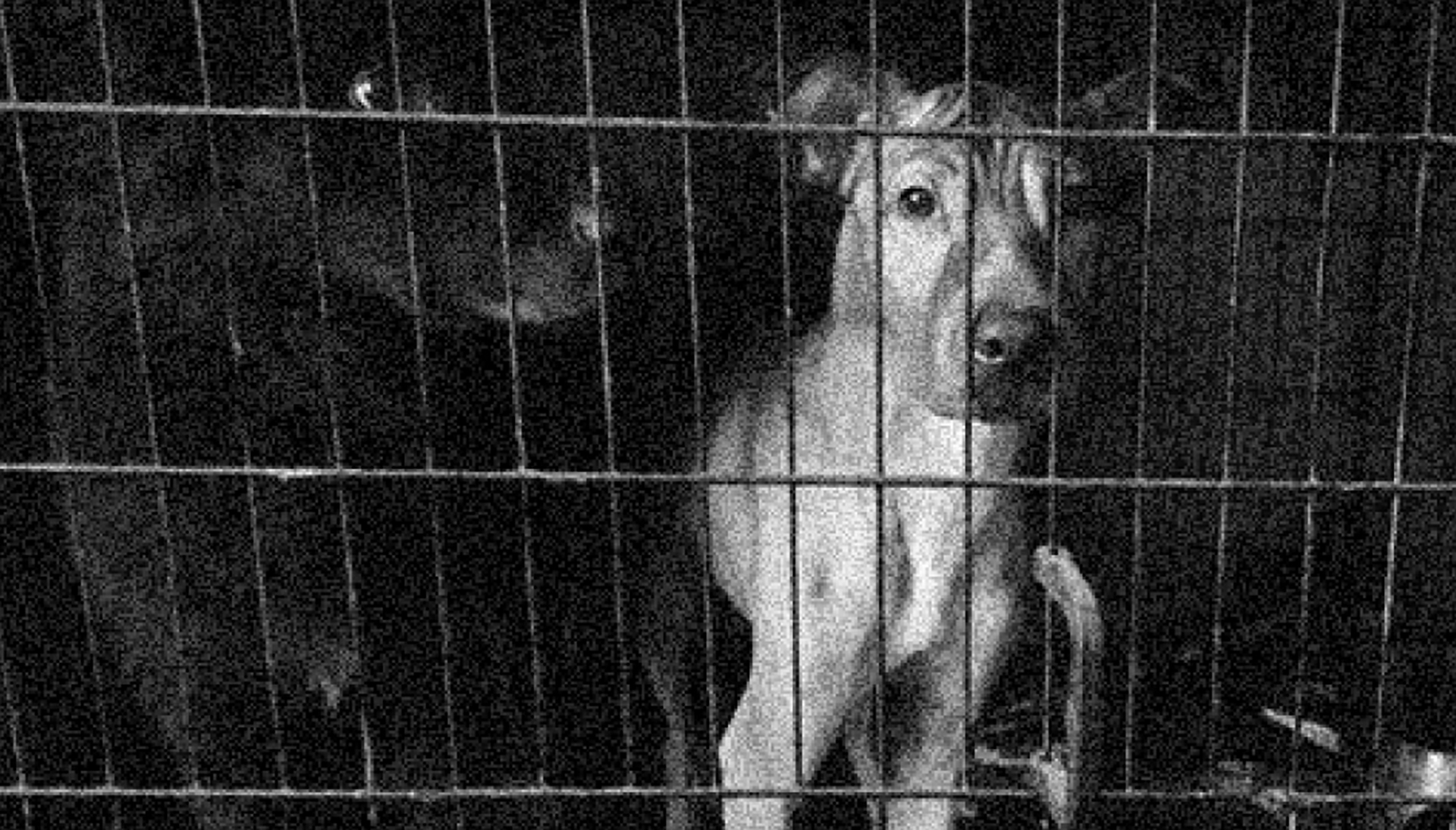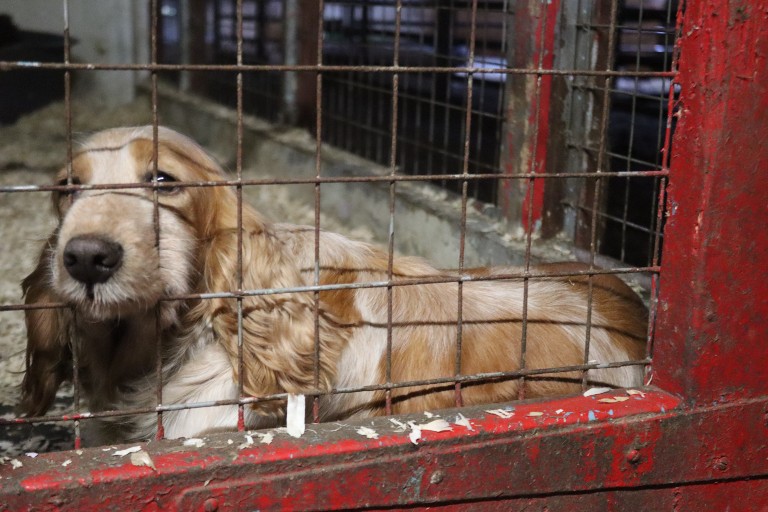
Puppy Farming
Find out about the work we do to close puppy farms – the syndicate that prioritises wealth over welfare.
Our Special Investigations Unit (SIU) investigates serious, organised and protracted animal-related crimes. Dedicated to ending animal exploitation and cruelty in Scotland, the team works tirelessly to bring perpetrators of serious animal crimes to justice. Puppy farming is a despicable, abusive industry that’s on the rise in Scotland and we are doing everything we can to put a stop to it.
What is a puppy farm?
Also known as a puppy mill, these awful places are characterised by their exploitative breeding behaviours and cruel conditions.
Perpetrators of these operations overbreed bitches – forcing them to mate and give birth to as many litters as they can, discarding them when they’re no longer of ‘use’. These mothers are neglected, made to part with their puppies too early, and treated as breeding machines – pumping out puppies for profit.
The treatment of the puppies in these establishments is no better. They’re often kept in small, overcrowded rooms with no bedding, comfort, or mental stimulation. In past cases, we’ve found puppies in unimaginable conditions, covered in faeces, dirt and disease.
Puppies bought from puppy farms often fall seriously ill, or even die, due to the poor conditions they were bred and brought up in. They’re also usually taken away from their mothers far too early which stunts development and can have a negative impact on their behaviour as they grow up.
Some puppy farms will source their pups from overseas where they are snatched from their mother and shipped off to be sold. It’s illegal to transport young puppies but this often doesn’t deter these hardened animal criminals. Travelling long distances causes unnecessary stress to these undeserving puppies, making them more likely to fall ill or develop lifelong health problems.
Coming from overseas also makes it more likely that they have unsuitable vaccinations, or none at all. Vaccination regulations are different in each country, so if the puppies from overseas do have any vaccinations, they likely won’t be those required in Scotland.
Buying a pup from a puppy farm can be an intense emotional and financial burden. We’ve investigated instances where puppies have died or fallen seriously ill mere days after being bought by unsuspecting owners. We urge you to never knowingly buy from a place like this.
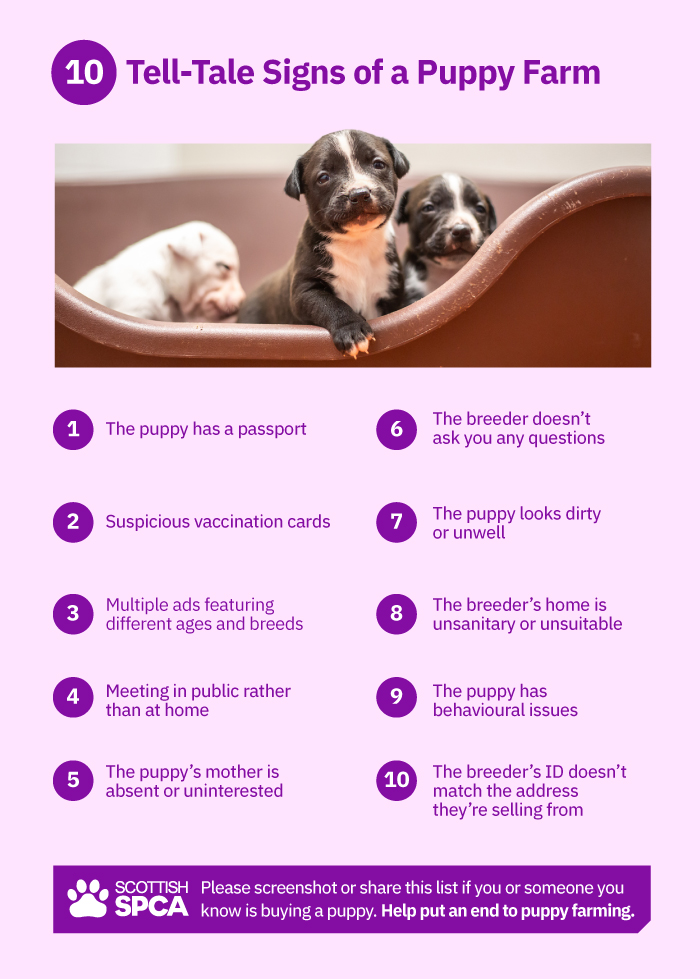
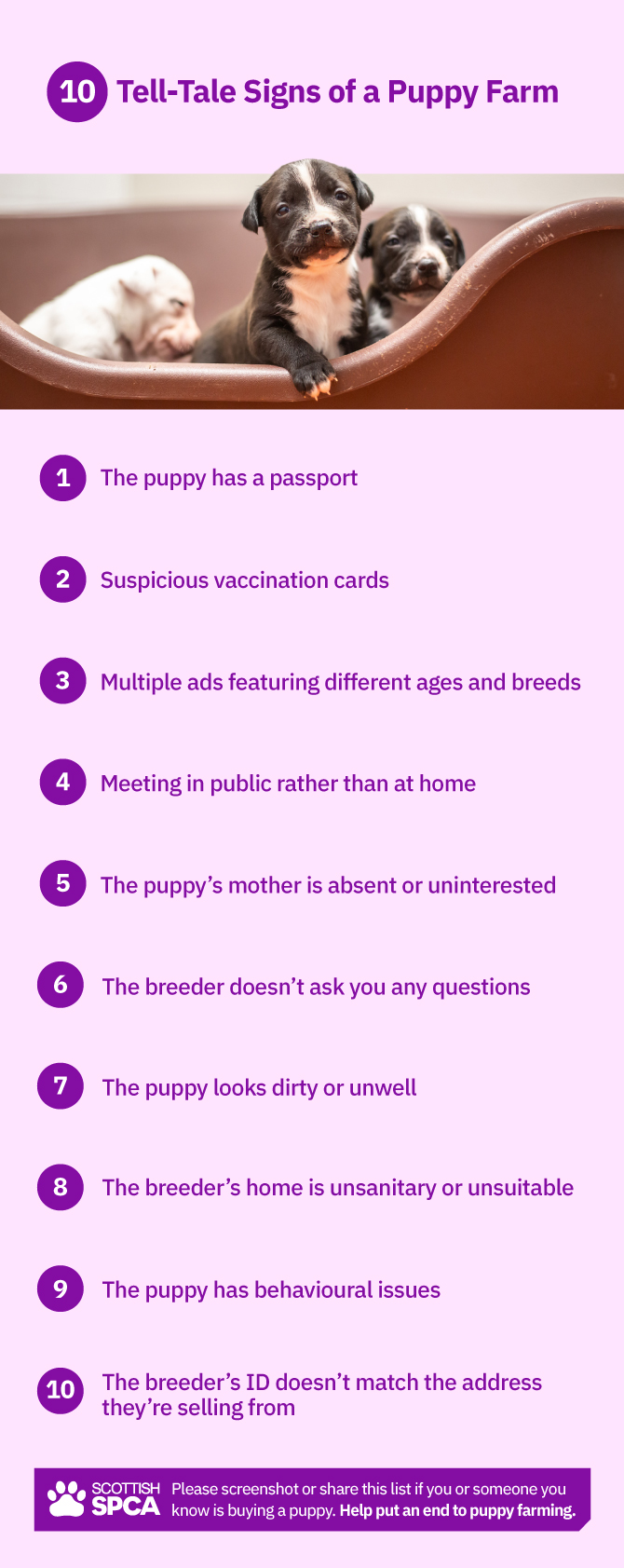
The problem with puppy farms
As well as the lack of concern for wellbeing, these establishments promote overbreeding and inbreeding, raising major ethical concerns. Legally, you can only have 6 litters from 1 dog, with The Kennel Club only registering the first 4. Despite these measures being in place, a significant number of unethical breeders slip through the cracks.
Inbreeding can cause many issues in puppies. If the dogs being bred are too closely related, the puppies are highly likely to develop health problems. Puppy farmers often don’t care about this – breeding any dogs they can, regardless of the consequences.
Another detrimental factor of puppy farms is the puppies’ lack of socialisation. Due to the conditions in which they’re usually kept, they don’t have the opportunity to experience a proper home environment or what it’s like to be around people. This results in the development of debilitating phobias and behavioural problems that can lead to both you, and your new pup, having a very stressful time.
The main goal of these operations is profit. Their animals are treated as livestock – viewed as pound signs rather than puppies.
Who are puppy dealers?
Puppy dealers are third party agents used by puppy farmers to sell and advertise their puppies. They often pretend to be the breeders, tricking the buyer into thinking the puppies have come from them. They have the same thirst for profit as the farmers do, and treat the puppies in the same, abusive way.
How to spot a puppy farm
Puppy dealers are becoming more sophisticated, making them harder to spot. These organised operations utilise diversion tactics such as ‘show’ homes equipped with ‘show’ bitches – healthy dogs that masquerade as the mother. We’ve also uncovered breeders who fake vaccination records and rent multiple properties to further their mirage of legitimacy. Those who run such businesses are experienced criminals who go to extremes to cover up what they’re doing and protect their profit.
From first glance it can be difficult to tell if a puppy has come from a puppy farm, unless they’re visibly dirty or diseased. It’s not until the puppy is taken home that strange behaviours or sicknesses begin to appear, indicative of its origin.
Despite the effort of these organisations, and the initial appearance of the puppies, there are a few signs that you can look out for:
- How many ads have been posted by the same person? Are there different breeds and ages on offer? A breeder offering a varied range of ages, breeds or colours is suspicious and may be running a puppy farm.
- Does the young pup have a passport? Only puppies over 12 weeks are able to get a passport so pay close attention to its age. When noticed alongside other signs, having a passport could suggest that the puppy has been imported.
- Make sure to look into the vaccinations/ vaccination records of your new puppy.
- If the seller asks to meet in a public place, rather than at home with the mother, push back on this. This is another tactic used by those involved in the puppy farming industry.
- Always make sure you see the mother of the puppies. Is she interacting with them? The real mum will have a visible bond with her puppies and will show signs of recently having a litter, such as visible, protruding teats. The puppies should be keen to play with her and each other.
- Do they ask you questions? Any reputable breeder will be concerned for the safety of their pups and will want to make sure they’re going to a supported, well-equipped home.
- What’s the environment like? Is it evident that the puppies have been living there? Are there any blocked off rooms or buildings on the property that seem suspicious?
- How do the puppies look? Are there any signs of mistreatment or disease such as discharge coming from their eyes, nose or ears? Do they seem lethargic or antisocial?
- Ask for the breeders ID. Does it match the address that they’re selling the puppies from?
What to do if you think you’ve bought from a puppy farm
Anyone can be tricked by an illegal puppy dealer, especially as these operations grow and become more advanced in their deception. If you think that your puppy has come from a place like this, then seek guidance from us and report it.
If you’re considering buying a new puppy and are suspicious of an advert, or breeder that you met with, then do not buy it. Many people who have suspicions still buy the pet in order to ‘rescue’ it. Despite the positive intention, this could be a massive financial and emotional undertaking and would fund the further abuse of the animals left in their possession. Leave the rescue missions to us.
Report the suspicious advert on whichever platform you saw it on and let us know about any welfare issues.
How you can help
Puppy farms are not ethical places to buy from; they’re breeding sites for disease and deprivation.
Please spare yourself the pain and stress of buying a puppy from somewhere suspicious. If you’re looking for a new furry friend, do your research and buy from a reputable retailer. Or why not consider giving one of the wonderful dogs in our care a loving forever home?
If you’re concerned about your puppy and its origins, or are aware of any suspicious behaviour regarding puppy farming in Scotland, then please get in touch today.
Support our Special Investigations Unit
As part of a charity, our efforts to combat and convict crimes against animals are entirely funded by donations. Each time you donate to the Scottish SPCA you’re not just contributing to the care and protection of Scotland’s animals, you’re assisting in the fight against serious animal-related crimes.
Please consider donating today and help us put a stop to as many of these abusive operations as possible.
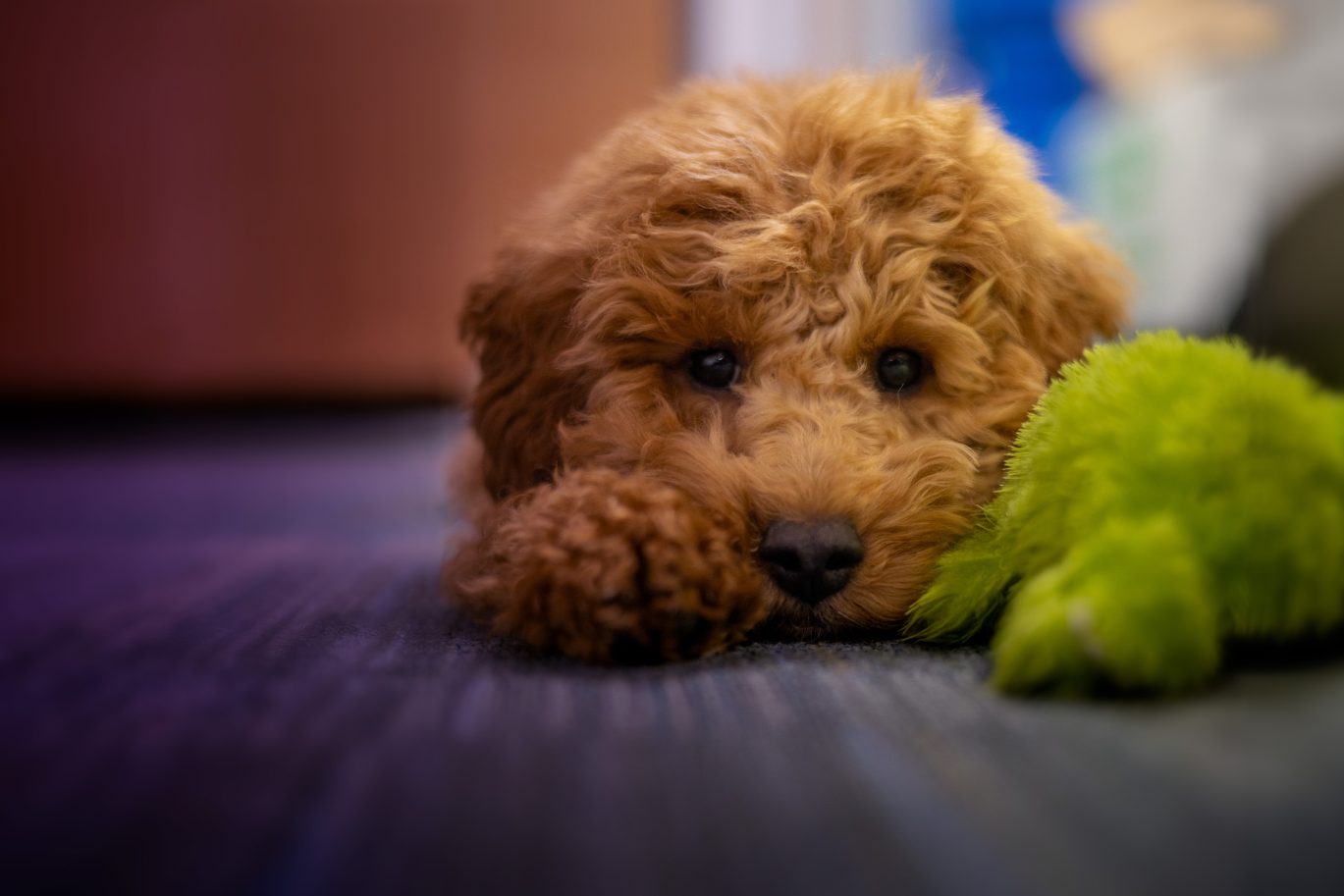
Together, we care for them
With your support, we can continue to care for Scotland’s animals every minute of every day. Your donation funds campaigns, research and projects to help give animals the life they deserve. Every £1 matters to all animals in our care.
